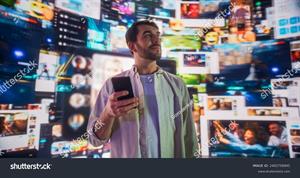
The Media: Understanding Its Power and Influence
In today’s world, the media plays a powerful role in shaping how people see and understand the world around them. Whether it’s through television, newspapers, social media, or online news websites, the media influences public opinion, informs society, and often entertains. However, with great influence comes great responsibility — and potential risk.
In today’s world, the media plays a powerful role in shaping how people see and understand the world around them. Whether it’s through television, newspapers, social media, or online news websites, the media influences public opinion, informs society, and often entertains. However, with great influence comes great responsibility — and potential risk.
What Is “The Media”?
The term media refers to the different ways information is communicated to the public. This includes traditional forms like TV, radio, and newspapers, as well as modern digital platforms such as blogs, YouTube, and social media. These sources help spread news, ideas, opinions, and cultural messages.
The Power of Media
Media has the power to:
Inform: It provides people with important updates about local and global events.
Educate: Documentaries, science programs, and interviews help people learn about different topics.
Entertain: Movies, shows, music videos, and memes are all forms of media entertainment.
Shape Opinions: The way media presents news or a story can affect how people feel or think about an issue.
For example, during an election, the media can influence how people vote by focusing on certain candidates more than others. In times of crisis, the media can help keep people calm — or cause fear — depending on how information is shared.
Media and Social Responsibility
Because media affects so many people, it is important that it remains fair, honest, and responsible. Unfortunately, not all media follows these principles. Some websites or influencers spread misinformation (false or misleading facts), which can cause confusion or harm. This is especially dangerous in health, politics, or during emergencies.
That’s why media literacy — the ability to think critically about what we see and hear — is so important. Being media literate means asking questions like:
Who created this message?
Is this information based on facts or opinions?
What is the purpose — to inform, sell, or entertain?
The Rise of Social Media
Social media has changed how we use and share information. It gives people a voice, allowing anyone to become a “media creator.” This has many positives — we can share personal experiences, connect with others, and hear different points of view. However, it also means anyone can post fake news, clickbait, or harmful content that spreads quickly.
Governments, companies, and schools are now working to teach young people how to use media wisely and protect their personal information online.
Vocabulary in Context
Misinformation False or incorrect information shared as if it were true
Media literacy The ability to understand, analyze, and evaluate media messages
Clickbait Attention-grabbing headlines or images that often lead to misleading content
Influence The power to change or affect someone’s beliefs, behavior, or decisions
💬 Discussion Questions
1. What kinds of media do you use most often? Why?
2. Have you ever seen false information online? What happened?
3. How can schools help students become more media-literate?
4. Should there be rules for what people can post on social media?
1. What kinds of media do you use most often? Why?
2. Have you ever seen false information online? What happened?
3. How can schools help students become more media-literate?
4. Should there be rules for what people can post on social media?